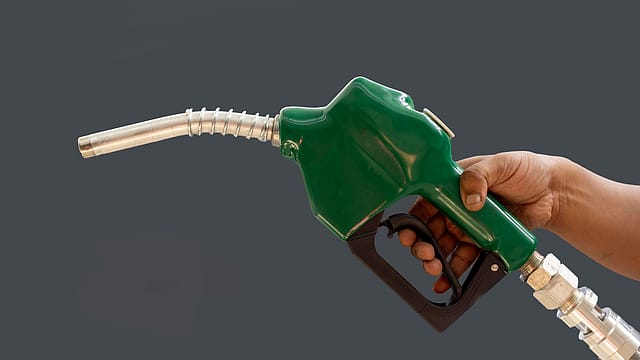Refining margins, inventory gains to mitigate OMCs' potential losses: Fitch
ADVERTISEMENT

State-run oil marketing companies (OMCs) may suffer losses in the fourth quarter due to the longest retail price freeze on petrol and diesel in recent years, but robust core refining margins and windfall inventory gains should mitigate the potential losses in near term, according to Fitch Ratings.
Government-owned fuel retailers kept petrol and diesel prices on hold for 137 days despite crude oil prices increasing by nearly $27 per barrel (or ₹13 per litre) during November 2021-March 2022.
Retail fuel prices have subsequently been raised by only around ₹11, implying that further price hikes may be required for marketing margins to reach pre-November 2021 levels, and early FY23 marketing margins may also be under pressure, the rating agency said.
Fuel retailers may see opportunities to recoup some of the losses in periods of falling oil prices, if and when that happens, it added.
"We expect such instances of indirect state interference in fuel prices to be temporary, and their impact on the standalone credit profiles (SCPs) of the Indian OMCs to be neutral over the long term. However, if crude oil prices are sustained beyond Fitch's base-case assumptions, then record-high retail fuel prices may limit the extent to which the changes are passed on, pressuring OMCs’ credit metrics," Fitch said.
January 2026
Netflix, which has been in India for a decade, has successfully struck a balance between high-class premium content and pricing that attracts a range of customers. Find out how the U.S. streaming giant evolved in India, plus an exclusive interview with CEO Ted Sarandos. Also read about the Best Investments for 2026, and how rising growth and easing inflation will come in handy for finance minister Nirmala Sitharaman as she prepares Budget 2026.
Fitch said that freedom on retail fuel pricing continues to remain a key area requiring clarity before the government’s proposed divestment of Bharat Petroleum Corporation Ltd's can be concluded.
India has traditionally used its control of the OMCs to carry out its socio-political agenda, affecting the competitiveness of private fuel retailers, which at a 10% market share have limited pricing power and align their retail prices with the OMCs, Fitch noted. "We expect private fuel retailers to increase exports at better margins during times when domestic margins are under pressure. India's export of high-speed diesel rose by 12% yoy over January-February 2022."
Fuel prices in India, and consequently the marketing margins of the oil-marketing companies should remain aligned with the movement in crude oil prices over the long term, notwithstanding sporadic periods of constant retail prices amidst heightened volatility in oil prices, Fitch said.
The OMCs benefited from strong marketing margins during times of low oil prices (March-June 2020), and endured margin pressure during high oil prices (November 2021-March 2022) as they tried to keep fuel prices affordable, Fitch said.
Shares of Hindustan Petroleum Corporation Ltd (HPCL) jumped 3.71% on BSE to ₹293.65 on Tuesday. The stock of Indian Oil Corporation Ltd (IOCL) rose 1.8% to ₹130.35.
